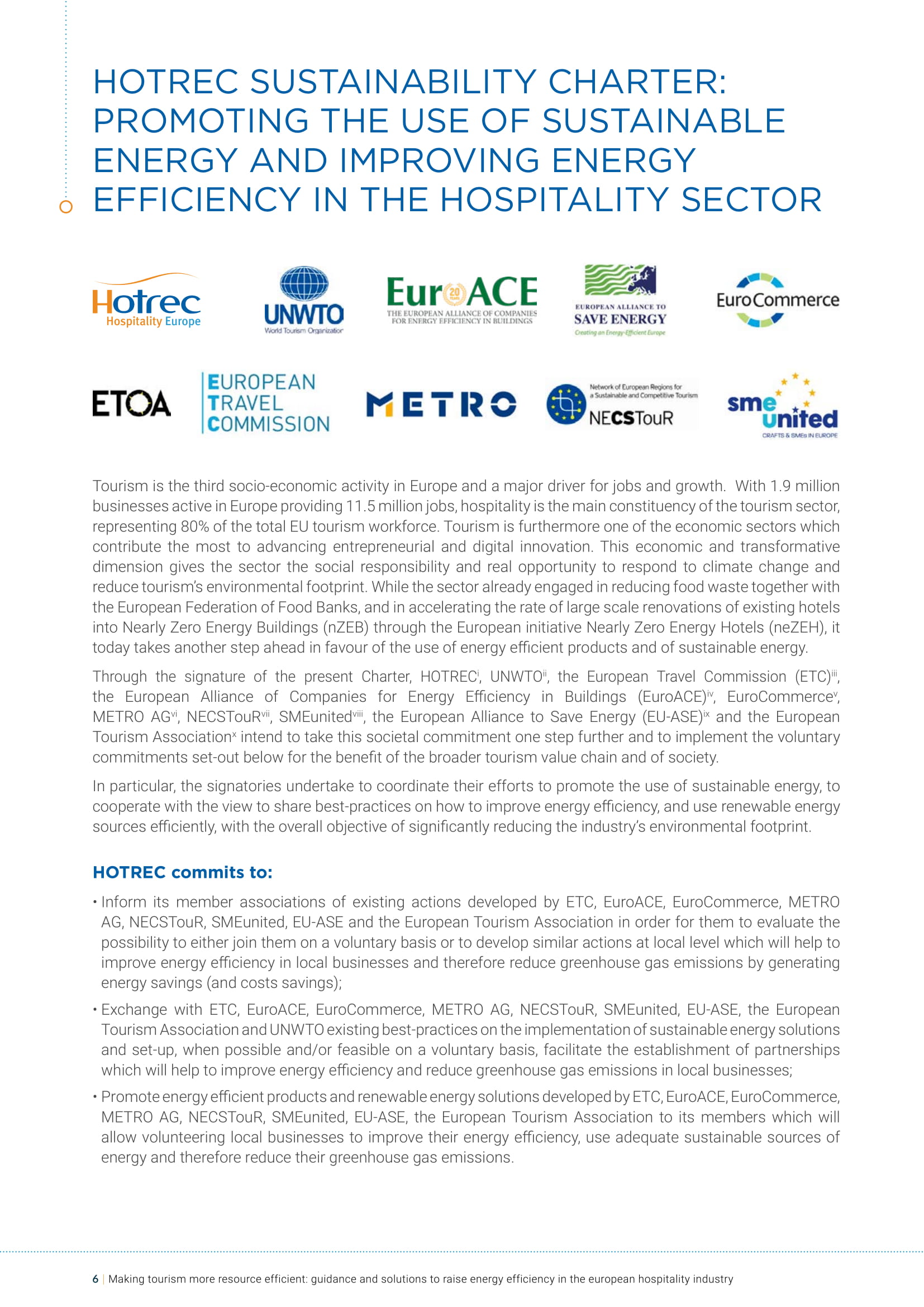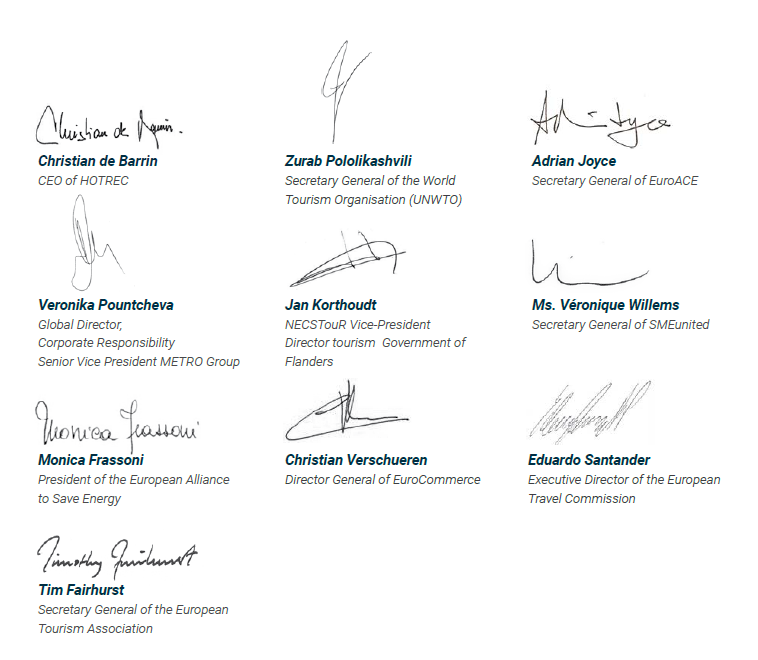
Tourism is the third socio-economic activity in Europe and a major driver for jobs and growth. With 1.9 million businesses active in Europe providing 11.5 million jobs, hospitality is the main constituency of the tourism sector, representing 80% of the total EU tourism workforce. Tourism is furthermore one of the economic sectors which contribute the most to advancing entrepreneurial and digital innovation. This economic and transformative dimension gives the sector the social responsibility and real opportunity to respond to climate change and reduce tourism’s environmental footprint. While the sector already engaged in reducing food waste together with the European Federation of Food Banks, and in accelerating the rate of large scale renovations of existing hotels into Nearly Zero Energy Buildings (nZEB) through the European initiative Nearly Zero Energy Hotels (neZEH), it today takes another step ahead in favour of the use of energy efficient products and of sustainable energy.
Through the signature of the present Charter, HOTREC, UNWTO, the European Travel Commission (ETC), the European Alliance of Companies for Energy Efficiency in Buildings (EuroACE), EuroCommerce, METRO AG, NECSTouR, SMEunited, the European Alliance to Save Energy (EU-ASE) and the European Tourism Association intend to take this societal commitment one step further and to implement the voluntary commitments set-out below for the benefit of the broader tourism value chain and of society.
In particular, the signatories undertake to coordinate their efforts to promote the use of sustainable energy, to cooperate with the view to share best-practices on how to improve energy efficiency, and use renewable energy sources efficiently, with the overall objective of significantly reducing the industry’s environmental footprint.
HOTREC commits to:
- Inform its member associations of existing actions developed by ETC, EuroACE, EuroCommerce, METRO AG, NECSTouR, SMEunited, EU-ASE and the European Tourism Association in order for them to evaluate the possibility to either join them on a voluntary basis or to develop similar actions at local level which will help to improve energy efficiency in local businesses and therefore reduce greenhouse gas emissions by generating energy savings (and costs savings);
- Exchange with ETC, EuroACE, EuroCommerce, METRO AG, NECSTouR, SMEunited, EU-ASE, the European Tourism Association and UNWTO existing best-practices on the implementation of sustainable energy solutions and set-up, when possible and/or feasible on a voluntary basis, facilitate the establishment of partnerships which will help to improve energy efficiency and reduce greenhouse gas emissions in local businesses;
- Promote energy efficient products and renewable energy solutions developed by ETC, EuroACE, EuroCommerce, METRO AG, NECSTouR, SMEunited, EU-ASE, the European Tourism Association to its members which will allow volunteering local businesses to improve their energy efficiency, use adequate sustainable sources of energy and therefore reduce their greenhouse gas emissions.
ETC, EuroACE, EuroCommerce, the European Tourism Association, METRO AG, NECSTouR, SMEunited, EU-ASE commit to:
- Inform HOTREC of its activities and products which are relevant to help improve energy efficiency and consequently reduce greenhouse gas emissions in the hospitality/tourism sector;
- Inform HOTREC of its existing programmes developed where the participation of the hospitality industry would be welcome;
- Provide to HOTREC relevant contacts at national level to help develop local partnerships on energy efficiency, sustainable energy use and the reduction of greenhouse gas emissions in local businesses.
UNWTO commits to:
- Provide support to HOTREC to help hospitality businesses improve energy efficiency and use renewable energy;
- Share within its network of affiliate members information on the activities developed by HOTREC, which will help to reduce the tourism sector’s environmental footprint;
- Inform HOTREC of its activities which would help local tourism businesses to implement cost-effective solutions to raise energy efficiency and/or reduce their greenhouse gas emissions.

